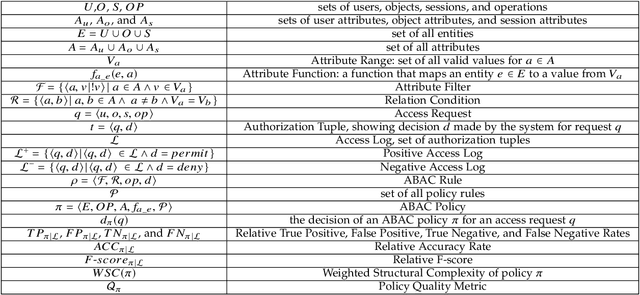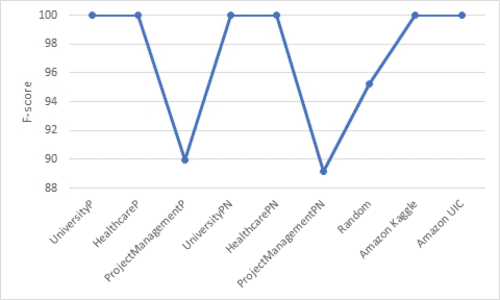An Automatic Attribute Based Access Control Policy Extraction from Access Logs
Paper and Code
Mar 17, 2020



With the rapid advances in computing and information technologies, traditional access control models have become inadequate in terms of capturing fine-grained, and expressive security requirements of newly emerging applications. An attribute-based access control (ABAC) model provides a more flexible approach for addressing the authorization needs of complex and dynamic systems. While organizations are interested in employing newer authorization models, migrating to such models pose as a significant challenge. Many large-scale businesses need to grant authorization to their user populations that are potentially distributed across disparate and heterogeneous computing environments. Each of these computing environments may have its own access control model. The manual development of a single policy framework for an entire organization is tedious, costly, and error-prone. In this paper, we present a methodology for automatically learning ABAC policy rules from access logs of a system to simplify the policy development process. The proposed approach employs an unsupervised learning-based algorithm for detecting patterns in access logs and extracting ABAC authorization rules from these patterns. In addition, we present two policy improvement algorithms, including rule pruning and policy refinement algorithms to generate a higher quality mined policy. Finally, we implement a prototype of the proposed approach to demonstrate its feasibility.
 Add to Chrome
Add to Chrome Add to Firefox
Add to Firefox Add to Edge
Add to Edge